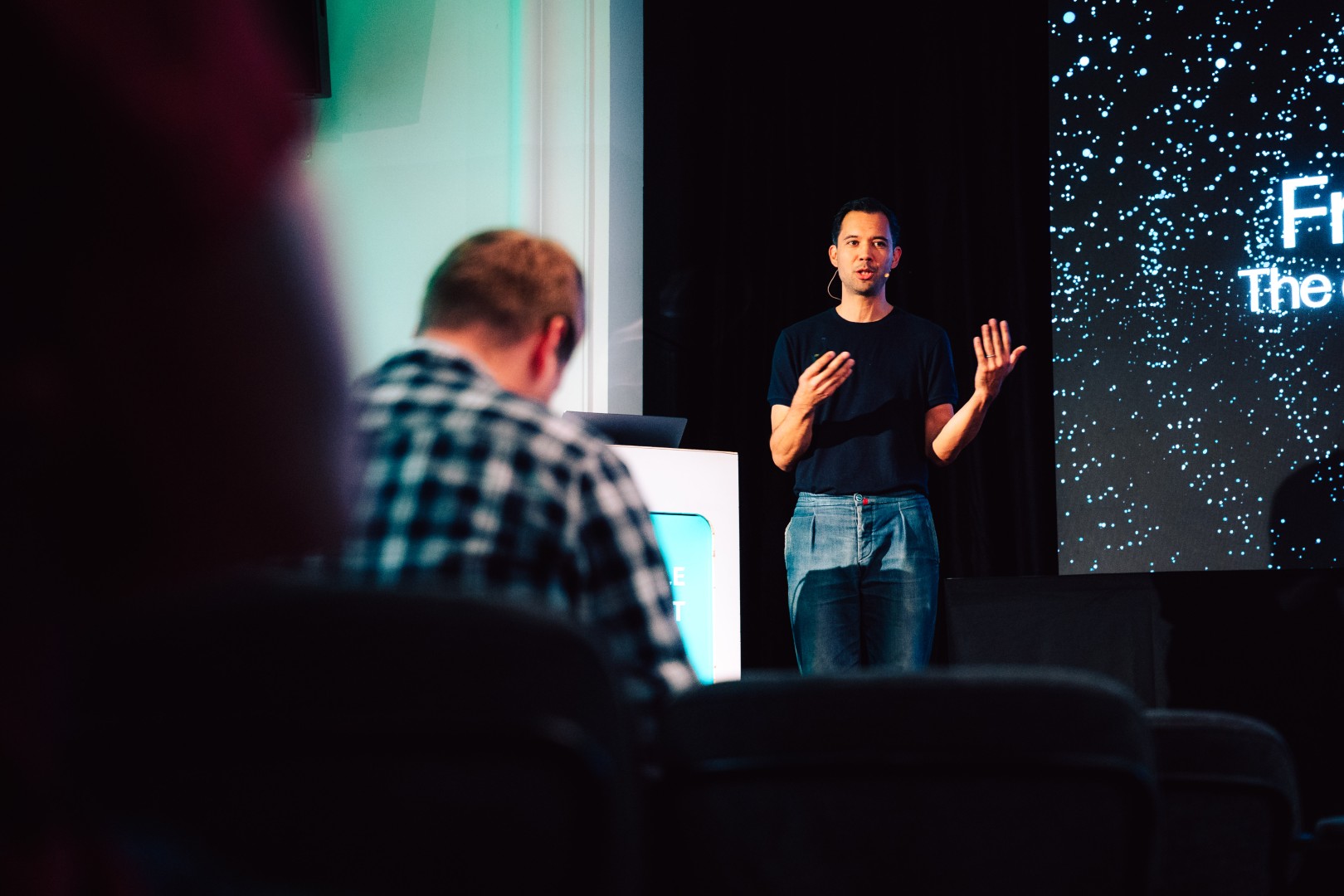Together with its partners, Bechtle reflects on how the role and presence of IT has changed over the past 25 years. Noisy machines are gradually becoming a thing of the past, but what will the next 25 years bring?
This year, Bechtle celebrates a quarter century of presence in the Belgian market. The IT service provider has been operating under one unified name since last year, after merging three Belgian companies into Bechtle NV. With one name comes one mission. “Bechtle stands for IT you can rely on and people you can trust,” says Gozard Polak, who opens the anniversary celebration in Mechelen.
The German-origin company positions itself as Switzerland in the IT industry. As an independent IT partner, it provides services, hardware, and software from various vendors. About ten years ago, Bechtle established an international
Bechtle’s popularity in the sector is evident at the event. Vendors who are each other’s biggest competitors in daily life chat casually with coffee cups in hand, or secretly check out each other’s latest products in the vendor zone.
Grey and Beige
The event focuses on looking back while also considering what the future holds for IT. Bechtle has been in the industry for 42 years now. In 1983, the CD-ROM was still the latest technology, and Microsoft Word made its first appearance. Today, the world looks completely different, and GenAI dominates the discussions.
Rajendra Sitompoel, CTO for HP in Benelux, has also received an invitation. With sound clips that are undoubtedly familiar to older readers, he takes us back 25 years in time. The iconic Windows XP startup tune, the ping of MSN Messenger, and the screaming printers and network modems: sounds that fill the room with feelings of nostalgia.
Yet the ‘good old days’ in IT weren’t always better. Sitompoel mercilessly bursts the nostalgia bubble. “Technology caused mainly noise. Besides all the noise, your desk was full of hardware and cables. Everything was beige and grey”.
Whispering IT
Much has changed in 25 years. Besides the diligent typing of colleagues, a ringing phone, and the printer occasionally being put to work, the office has become much ‘quieter’. “A modern workplace is compact and organized. Technological developments have already greatly reduced the noise. Today’s IT whispers,” says Sitompoel.
At the same time, the concept of ‘workplace’ is changing. Sitompoel: “We’re no longer tied to one desk. The web, smartphones, and the cloud have had a huge impact. Our workplace can be anywhere, so we need access to data from everywhere. Collaboration has become part of our culture. Now AI is entering the workplace as the ‘new normal'”.

Is everything rosy then? “Frictions remain. Only one in five employees says they have a healthy relationship with work,” Sitompoel refers to a recent study by HP. “We’re always ‘on’ and that’s a double-edged sword. This is about more than technology, but also processes, culture, and so on. People today are looking for meaning in their work. Technology can support that search”.
In the Background
Sitompoel ventures a cautious prediction about how technology will look in 25 years. A clip from one of the Iron Man films where Tony Stark collaborates with his AI assistant Jarvis proves illustrative of that future. “Now IT has become quieter, but you still see it. We expect technology to disappear into the background in the future”.
With each new wave, the way we use technology changes. Sitompoel: “We’ll be able to interact with technology in a much more human way. It becomes almost an extension of our brain that we use unconsciously. It’s less present but has greater impact”.
“Workplaces as we know them today won’t disappear, but will adapt organically and become more personal. The entire ecosystem needs to work together for this. A ‘whisper’ evolves into a flow,” concludes Sitompoel.
Technology in the workplace evolved from noise to ‘whisper’ to a ‘flow’.
Rajendra Sitompoel, CTO HP Benelux
No Shortcuts
The last word goes to Bechtle itself. After a brief jump to the future, Elisabeth Vinek, Data & AI Manager Bechtle Suisse, brings us back to the present. Vinek advocates for a sober view of the AI hype, and she’s not alone in this: earlier in the morning, guest speaker Inti De Ceukelaire from Intigriti had already awakened the audience to the fact that the artificial brain of AI chatbots is just as flawed as that of humans.
Vinek: “There’s no shortage of news about AI nowadays, from positive to frightening coverage. People are becoming familiar with Copilots for productivity, but the potential of data remains untapped. The ‘Excel chaos’ is still not resolved”.
The ‘Excel chaos’ is still not resolved.
Elisabeth Vinek, Data & AI Manager Bechtle Suisse
‘No AI without data’ is a point being hammered home these days, and Vinek has brought her hammer too. “AI is just the tip of the iceberg. What’s invisible is much more important. It becomes much more complex when dealing with specific use cases that require internal data. Consistent and uniform data is a major obstacle for many organizations”.
The iceberg consists of three levels: the foundation is laid by infrastructure, and on top of that sits what Vinek calls the source of truth. Only then comes the highest level of ‘intelligence’. “Without consistent data, you can’t deploy AI in a meaningful way. AI isn’t an all-rounder, but it can be a valuable team player. With the right data, AI simplifies decisions that people need to make. There are no shortcuts”.
Bechtle is ready for the next 25 years. The company has evolved from a hardware seller to a broader digitalization partner that looks at change soberly and realistically, without losing sight of the bigger picture.
This article was created in collaboration with our partners HP and Bechtle.
